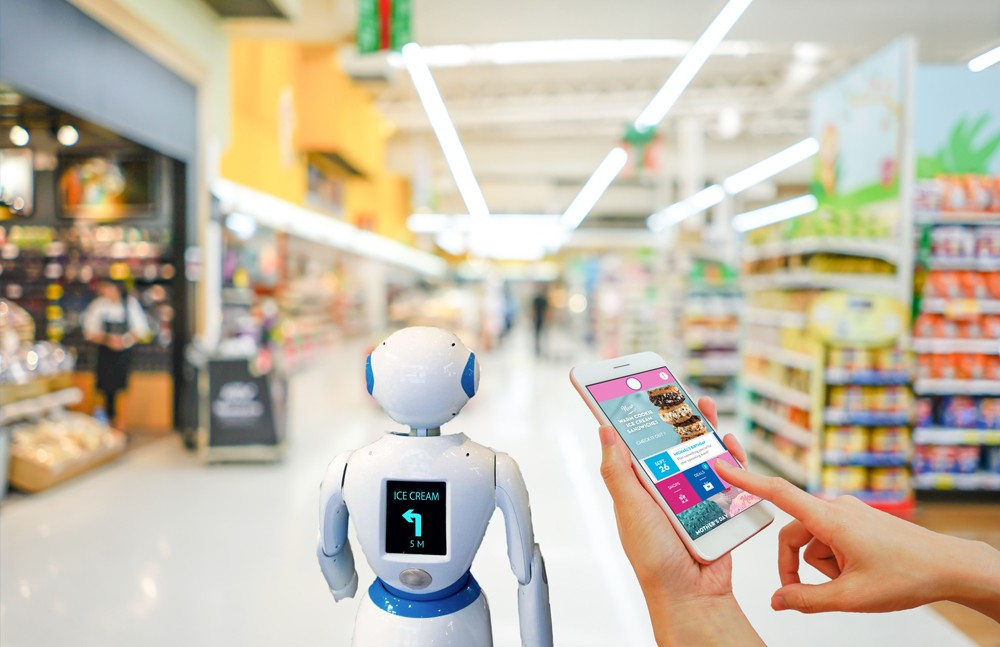Consider walking into your favorite store or logging into a shopping portal and receiving recommendations that are customized for you. That is where Artificial Intelligence (AI) comes into play in retail, providing a blend of cutting-edge machine learning, deep neural networks, and a dash of human insights to elevate the entire customer experience.
Whether it is personalized shopping tips given by intelligent chatbots or the seamless integration of online and offline experiences, the influence of AI cannot be ignored. AI in retail is proving to be a powerful catalyst, allowing businesses to extract actionable insights from large amounts of data and make real-time decisions. Therefore, the AI in the retail market is on an upward growth curve and is projected to cross a revenue of USD 40 billion by 2030.
What is Driving the Rise of AI in the Retail Market?
Personalized Experiences
AI solutions, particularly those using machine learning and natural language processing, enable businesses to analyze customer data and create personalized recommendations that lead to a rise in sales.
Machine Learning and Deep Learning
Recent breakthroughs in deep learning and neural networks are revolutionizing the retail sector by enabling quick processing of huge amounts of data, allowing businesses to forecast consumer trends and then fine-tune marketing strategies with high precision.
Optimizing Supply Chain and Inventory
AI-driven analytics provide retailers with the tools to streamline their inventory management and supply chain operations. By utilizing real-time data and computer vision, businesses can accurately predict stock levels, reduce waste, and ensure the required products are stocked at the right time.
Omnichannel Integration
AI is a crucial player in combining the digital and physical shopping experience, which helps customers forget whether they are browsing online or visiting a physical store. This integrated approach can boost conversion rates, transforming the entire retail journey.
Enhanced Data Analytics Capabilities
Retailers can now accurately anticipate market trends and react to customer demand by adjusting pricing strategies in real time. Intelligent analytics can identify opportunities and challenges in real time and quickly resolve them, keeping businesses agile.
What Are the Emerging Trends and Innovations in Global AI in Retail Market?
AI-Powered Personalization Engines
Companies like Salesforce Einstein and IBM Watson are leading players in using dynamic AI platforms that analyze every click and purchase. Their systems crawl through massive amounts of data to create hyper-personalized experiences, delivering product suggestions that feel intuitive and timely.
Intelligent Chatbots and Virtual Assistants
LivePerson and Google’s Dialogflow are leading the pack in developing intelligent virtual assistants supported by natural language processing. These chatbots are available 24/7, streamlining customer service and also helping reduce operational costs.
Visual Search and Computer Vision Solutions
Computer vision tools are making it possible for consumers to search for products using images rather than words, thereby transforming shopping. Companies like Syte and Pinterest are leading this trend with advanced computer vision capabilities.
Robotics and Autonomous Inventory Management
These autonomous robotics and inventory management systems reduce human error, optimize stock levels, and free up staff to focus on more customer-centric activities, driving efficiency in the supply chain.
Dynamic Pricing and Predictive Analytics Platforms
Companies such as Blue Yonder and Oracle Retail provide dynamic pricing platforms that use predictive analytics to adjust pricing based on market trends, inventory levels, and competitor actions. These platforms ensure that prices are always optimal, maximizing profitability while keeping customers satisfied.
Wrapping Up
Artificial Intelligence in retail is a comprehensive transformation that is changing how we interact with brands and experience shopping. The shift towards personalized experiences, combining online and offline channels, autonomous inventory management, and dynamic pricing is revolutionizing retail. Technologies such as machine learning, natural language processing, computer vision, and deep neural networks are causing disruptions in retail. Hence, investors are likely making huge investments in the opportunities created by technological advancements in the retail market.
















